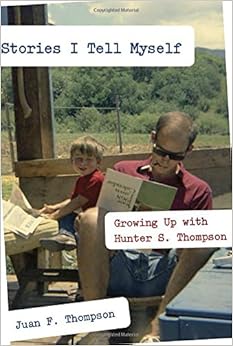 |
| photo from Democracy Now |
As a white man who’s easily mistaken for Native American, Latino, and Arab, to name a few, I’ve had a curious experience with my whiteness. Due to being raised by an unambiguously white family in a mostly middle-class environment, I’ve benefited as much as most Caucasians from white privilege. The instances of racism I’ve encountered have been few and haven’t seemed impactful, an experience I think of as sharply distinct from that of most non-white people .
I grew up in the early 90s. Blue-collar republican politics and small town catholicism laid the foundations of my world view. I grew up with the Fresh Prince of Bel-Air and Magic Johnson on the Wheaties box. A white culture that espoused a post-racial society decades before the term was coined.
Even as I developed a leftist, “counterculture” identity, I developed it within the yolk of whiteness. American television was my country. That was my language. As a socially awkward introvert in a small town, most of the racial insults spit at me from other white kids went over my head. Moving to suburban Virginia Beach when I was 11, it may as well have been Miami. For the first time I was interacting with Blacks, Asians, Latinos, all with their own narratives of race and history that conflicted with or disregarded my own. Hearing many of them extol racist and homophobic views was a shock. Eventually, it dawned on me how much I had seen other races as less than people, as victims or objects.
I developed the kind of racism a lot of white men do. Looking back, it seems obvious how much of it was the burgeoning aggression that accrues among any group of adolescents. We create irrational beliefs and convictions based on events governed by hormones. Why do so many of us carry them into adulthood? Certainly more white guys tried to kick my ass than black guys, but internally, I use those memories of confrontation with Blacks as a pretext to profile. To this day, a black person my age or younger will put me on edge sooner than a white person in the same clothes. It doesn’t matter that I know this is a prejudice, there’s a gut reaction I still live with that leaves my perception flawed. Of course I do this with all races. But this perception is constantly reinforced by the American propaganda of black inferiority.
White people often ask: “what can we do to fight racism?”
Black people have always said, “talk to your people,”
to which we’ve replied, “is there anything else?.”
No one wants to call up the folks and start a conversation about race. No one wants to roll over in bed and say, “honey, let’s talk about you saying ‘nigger’ all the time.” But conversations about race will inevitably come up. What is required of us is a greater will to take those opportunities instead of letting it pass because we don’t want to appear confrontational or naive, or we don’t want to lose our cool and sound off. And of course, we don’t want to deal with the typical reaction that merely asking why a white friend said something related to race will illicit. “I’m no racist!” As if the only reason to talk about race could be to shame someone. But that’s one of the main things race relations in America actually need, more honest conversations.
The activism in Ferguson and across the country since Michael Brown’s death have put police brutality, and the institutional racism that enables it, front and center in the mainstream media. And kept it there, forcing us to examine how power and abuse is perpetuated every day, often by white people simply “not being racist.” Emily Pothast expounds on this theme in her article, True Confessions of a White Supremacist.
What is especially insidious about racism is that it’s so easy to argue that it’s natural, a necessary evil. That it can’t be remedied, only ignored or apologized for. To be sure, we all develop persistent prejudices and reflexes, but to pretend that they are unchangeable or innate is fatalistic and lazy. In Race Matters, Professor Cornel West artfully challenged much of the prevailing notions about blackness and progress in America.
“Hence, any claim to black authenticity- beyond that of being a potential object
of racial abuse and an heir to a grand tradition of black struggle- is contingent
on one’s political definition of black interest and one’s ethical understanding of
how this interest relates to individuals and communities in and outside black
America. In short, blackness is a political and ethical construct. Appeals to
black authenticity ignore this fact; such appeals hide and conceal the political
and ethical dimension of blackness.”
of racial abuse and an heir to a grand tradition of black struggle- is contingent
on one’s political definition of black interest and one’s ethical understanding of
how this interest relates to individuals and communities in and outside black
America. In short, blackness is a political and ethical construct. Appeals to
black authenticity ignore this fact; such appeals hide and conceal the political
and ethical dimension of blackness.”
In 2016 it remains an open question if we as white people will show the same rigor in examining the political and ethical dimensions of whiteness.
